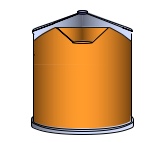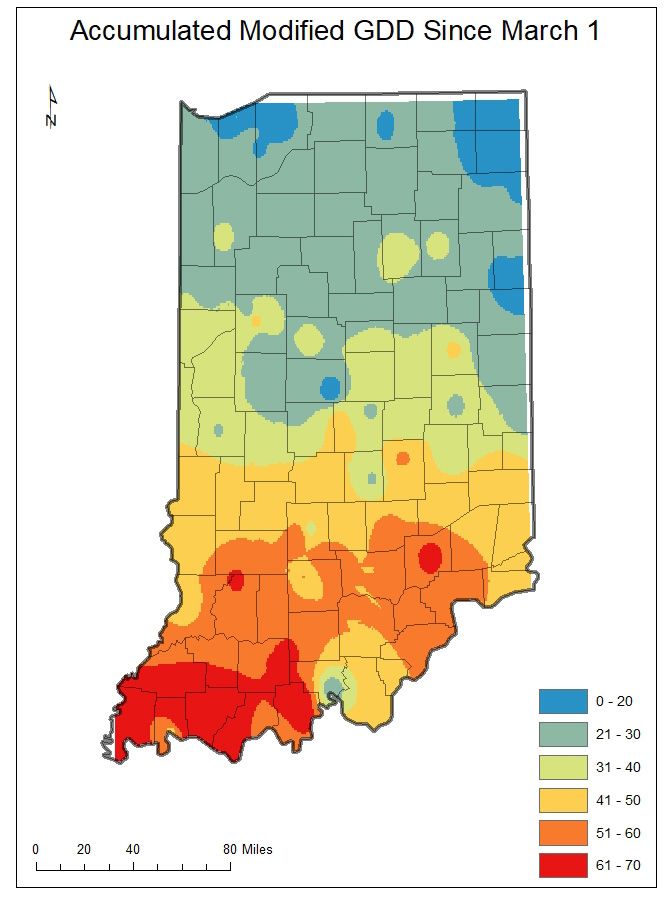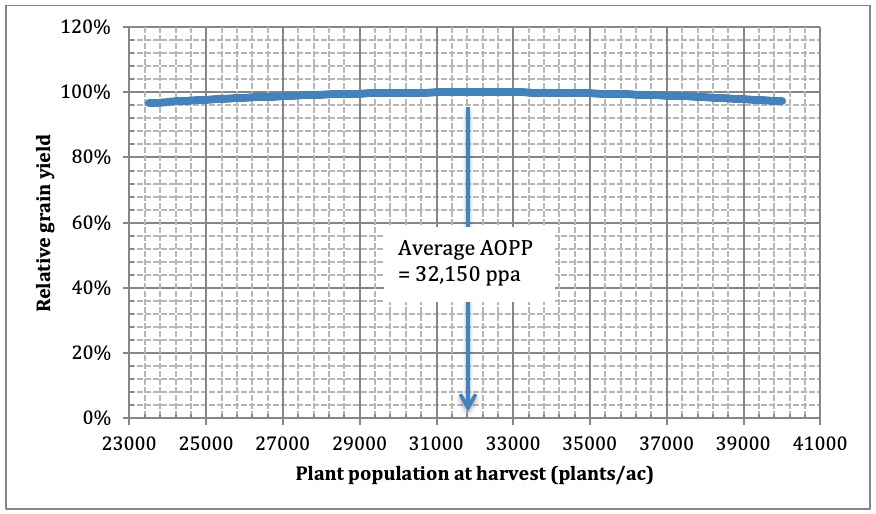
It’s getting to be quite a challenging start in the year from getting out of a late wet harvest season to now dealing with the disruptions of life and services as we know it due to COVID-19 pandemic.

It’s getting to be quite a challenging start in the year from getting out of a late wet harvest season to now dealing with the disruptions of life and services as we know it due to COVID-19 pandemic.
Some of these challenges include severely delayed planting of hemp (and most other crops), labor shortages for some growers, “hot” hemp crops (THC > 0.3%), and harvested hemp left in barns and warehouses while some of the larger hemp processing companies filed for bankruptcy.

Over the past 30 days, southern Indiana has received above-average precipitation which has caused some flooding and well-saturated fields.

Seed corn represents the single most expensive variable input cost for Indiana corn growers (Langemeier et al., 2019) and so choosing the most economical seeding rate is important for maximizing that dollar return to seed at harvest time.
Purdue extension corn and soybean specialists Dr. Bob Nielsen and Dr. Shaun Casteel try to shed some light on where planting prospects are now, related to the effects of the pandemic.
Since the 1970’s Purdue University’s Agricultural and Biological Engineering Department has been documenting and investigating incidents involving grain storage and handling facilities at both commercial and on-farm locations.

Purdue Extension and Hoosier Ag Today have teamed up for a new podcast to provide timely, relevant and credible agronomic insights to listeners. Purdue Crop Chat features extension corn and soybean specialists Dr. Bob Nielsen and Dr. Shaun Casteel from Purdue.
Office of Indiana State Chemist (OISC) is releasing new temporary guidance regarding compliance with state pesticide and fertilizer regulatory requirements in Indiana, in consideration of the disruptions to normal operations that are being caused by the COVID-19 pandemic.
This is a listing of the Purdue field crop specialists for 2019.
The handbook lists agri-chemicals registered and regulatory status or special use restrictions.
© 2024 Purdue University | An equal access/equal opportunity university | Copyright Complaints | Maintained by Pest&Crop newsletter
If you have trouble accessing this page because of a disability, please contact Pest&Crop newsletter at luck@purdue.edu.